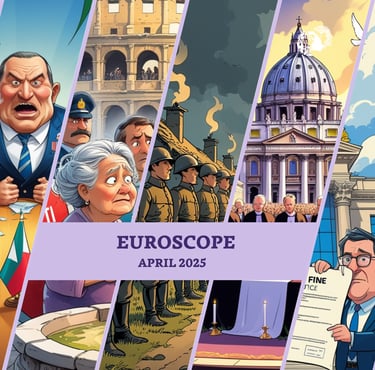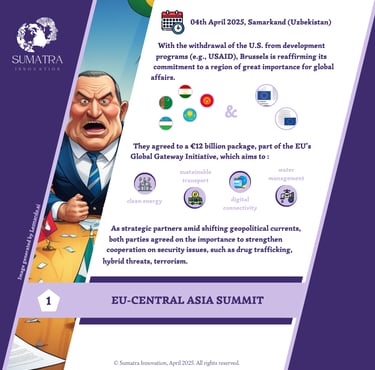Euroscope / April 2025



1/ EU-Central Asia Summit
The first summit between the EU and Central Asia, which was attended by the Presidents of Kazakhstan, Kyrgyzstan, Tajikistan, Turkmenistan and Uzbekistan as well as the President of the European Council, António Costa, and the President of the European Commission, Ursula von der Leyen, on April 4, 2025, was an important step towards a closer partnership. With the withdrawal of the US from development programs (e.g., USAID), but also from sustainable development efforts and multilateral dialogue, Brussels is reaffirming its commitment to a region of great importance for global affairs. For example, a €12 billion package has been announced as part of the EU's Global Gateway Initiative, which aims to improve sustainable transportation, critical commodity supply chains, digital connectivity, clean energy and water management. Central Asia is not only a strategic hub in global politics, but also a priority in the European Union's foreign and security policy. While long seen as a buffer zone between powers, the region has emerged as a strategic partner for the EU-27 amid shifting geopolitical currents and intensifying global competition between powers. Both sides shared security concerns, including the situation in Ukraine and Afghanistan, reaffirmed the need for peaceful conflict resolution and the commitment to prevent the circumvention of sanctions, and declared their willingness to strengthen cooperation on drug trafficking, hybrid threats, terrorism, and chemical, biological and nuclear threats. Both parties also emphasized the importance of strengthening trade and investment through the implementation of existing and future Enhanced Partnership and Cooperation Agreements (EPCAs).
2/ Italian Security Decree
Under the guise of wanting to make life in Italy safer, the Italian government under the leadership of Prime Minister Giorgia Meloni issued a controversial security decree on April 4, 2025. By invoking emergency powers, Meloni's government can bypass the usual parliamentary procedures to implement measures to improve public order and security. However, the 20 laws bring with them a series of restrictive changes, some of which would have a direct impact on the lives of Italian citizens. For example, the decree provides for stricter penalties (up to two years in prison) for people who take part in protests involving road or rail blockades. On top of this, passive resistance (e.g., non-compliance with regulations during protests or in detention centers) is now a criminal offense punishable by one to five years in prison. The decree also provides legal guarantees for police and military personnel, allowing them to continue their duties even if they are under investigation for acts committed while on duty. In addition, law enforcement officers are now allowed to carry personal weapons off duty without a license. However, the passing of the decree led to widespread public protests and criticism from opposition parties. Students and activists gathered in cities such as Rome to express their opposition, leading to some clashes between protesters and police forces. Members of the opposition parties described the decree as an authoritarian move that undermines civil liberties and democratic principles. Even UN human rights experts expressed concerns, pointing out that the vague definitions and broad provisions could lead to arbitrary enforcement and repression of dissent, and called on the Italian government to reconsider the decree to bring it in line with international human rights standards. The security decree must now be approved by parliament within 60 days of its adoption, with its future dependent on the legislative process and the ongoing public and political discourse on its impact on Italy's democratic values and human rights obligations.
3/ Russian Spring Offensive
On April 9, Ukrainian military chief Oleksandr Syrskyi announced that Russia had launched a new offensive against Ukraine. The spring offensive took place on several fronts: in the north and south of Ukraine, in the Donetsk region and with targeted missile strikes on major cities such as Kiev. In the north-east, Russia has massed some 67,000 troops near the border, resulting in intense battles and the capture and advance of the Sumy and Kharkiv regions. In the Donetsk and Kursk regions, the latter being the Russian region that Ukrainian forces invaded last summer, Russia intensified its ground assaults with the aim of disrupting Ukraine's supply lines. At the same time, large-scale missile and drone attacks were carried out throughout Ukraine. For example, on April 24, a North Korean KN-23 ballistic missile was fired into Kiev, killing 12 people and injuring more than 90. In the face of these military developments, diplomatic efforts led by the United States and European allies to establish a ceasefire intensified. But differences in the proposed terms, particularly concerning territorial sovereignty and security guarantees, juxtaposed with the Russian spring offensive, illustrate the complex interplay between military actions and diplomatic efforts.
4/ Passing of Pope Francis
On Easter Monday, April 21, 2025, Pope Francis passed away at the age of 88, in his residence at the Domus Sanctae Marthae in the Vatican. The funeral mass took place five days later in St. Peter's Square, gathering around 250,000 mourners through the streets of Rome to the Basilica of Santa Maria Maggiore. Following the death of Pope Francis, the Catholic Church enters a period of transition, with a conclave to elect his successor due to take place between May 6 and 12, 2025. Potential candidates include Cardinals Pietro Parolin, Matteo Zuppi, Luis Tagle and Robert Sarah, representing a range of theological perspectives. The outcome of the conclave is of great importance, as the choice of the next pope will significantly influence the direction of the Church, particularly with regard to the continuation or reassessment of Francis' reforms. The first Jesuit pope and a native of Latin America, Pope Francis has introduced essential reforms and approved major achievements. For example, he has held historic meetings with religious leaders, including the Russian Orthodox Patriarch and Islamic leaders. He was also the first pope to address the US Congress, in 2015. He introduced “Curia Reform”, allowing lay people, including women, to head Vatican departments, and implemented the “Vos Estis Lux Mundi” program, mandatory reporting procedures for abuse and cover-ups to increase clergy accountability for sexual abuse. Pope Francis has also opened the way for divorced and remarried Catholics and encouraged pastoral sensitivity and non-discrimination towards LGBTQ+ people. The outcome of the conclave will therefore determine whether the Church maintains the progressive trajectory set out by Pope Francis or moves towards a more traditional approach.
5/ Apple and Meta fined for breaching the DMA
Enacted in 2022 and coming into force in 2024, the Digital Markets Act obliges major technology companies (i.e., those with substantial control over digital markets) to ensure fair competition by prohibiting practices that unfairly restrict other companies or consumers. In March 2024, just after the deadline for compliance with the Digital Markets Act had expired, the Commission opened formal investigations against several companies. While Apple was investigated over potential restrictions on app developers to inform users of cheaper options outside the App Store (i.e., the anti-steering issue), Meta was investigated over its “Consent or Pay” model for Facebook and Instagram, which forces users to either accept invasive tracking or pay for privacy. As a result of these investigations, the Commission issued preliminary warnings to both companies in January and February 2025. Although given the opportunity to react and modify their behaviour, Apple made only minor adjustments and Meta defended its model, leading the Commission to assess their non-compliance. The result? Apple was fined 500 million euros for its anti-steering behavior, and Meta 200 million euros for its abusive consent practices. With sales of $164.5 billion in 2024 for Meta and $124.3 billion in the first quarter of 2025 for Apple, these fines represent only a small fraction of the companies' overall sales. Yet these measures have raised tensions between the EU and the US, with the latter describing the fines as “economic extortion”. For its part, the EU considers the fines insufficient to deter future violations, given the considerable revenues of these technology giants. In any case, the Commission wanted to send a clear message: the EU is ready to apply sanctions swiftly, without waiting years as in past antitrust cases, and major technology companies must proactively adapt to the new rules.




